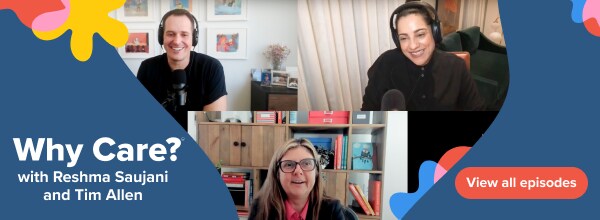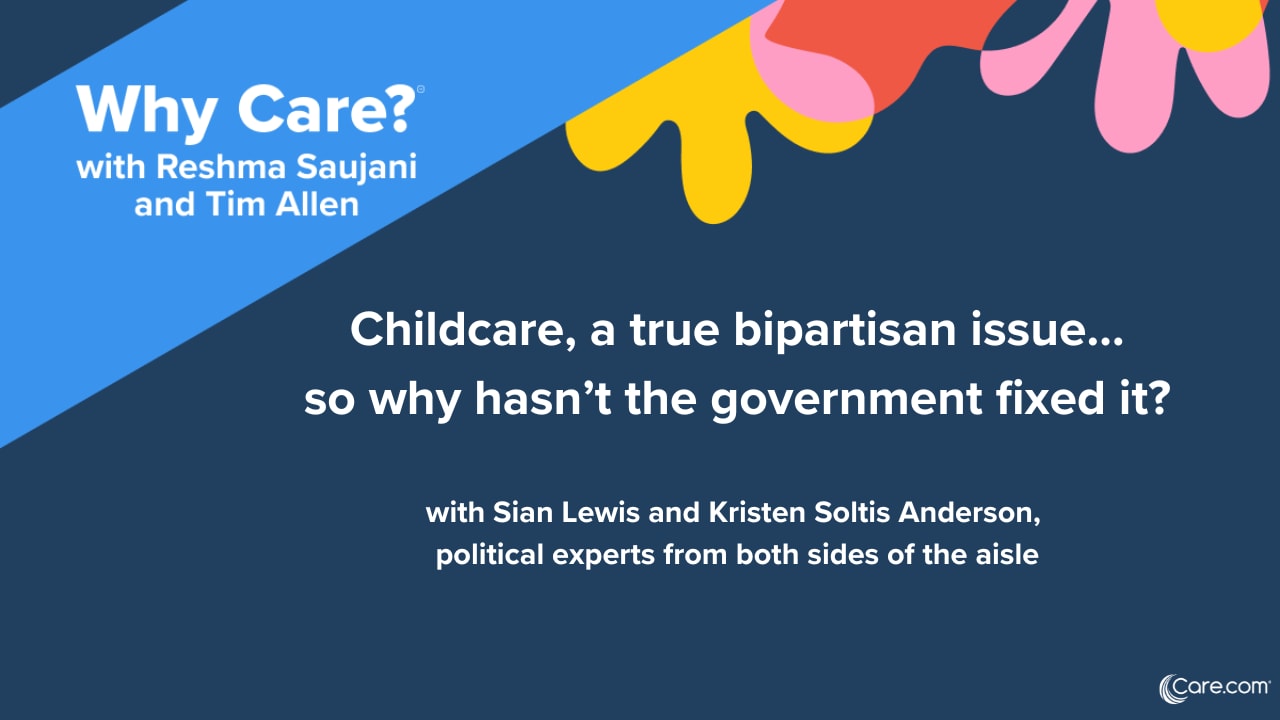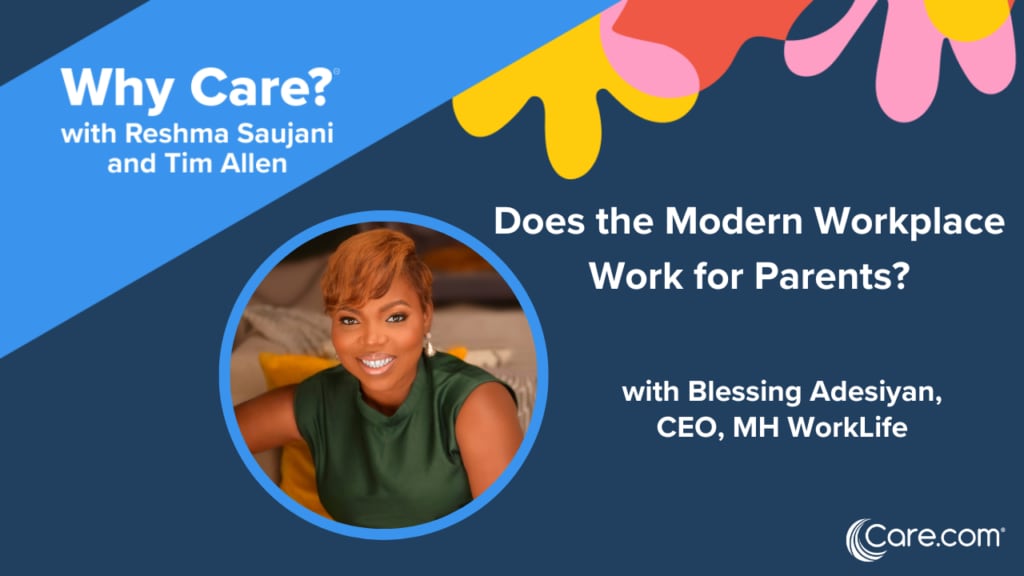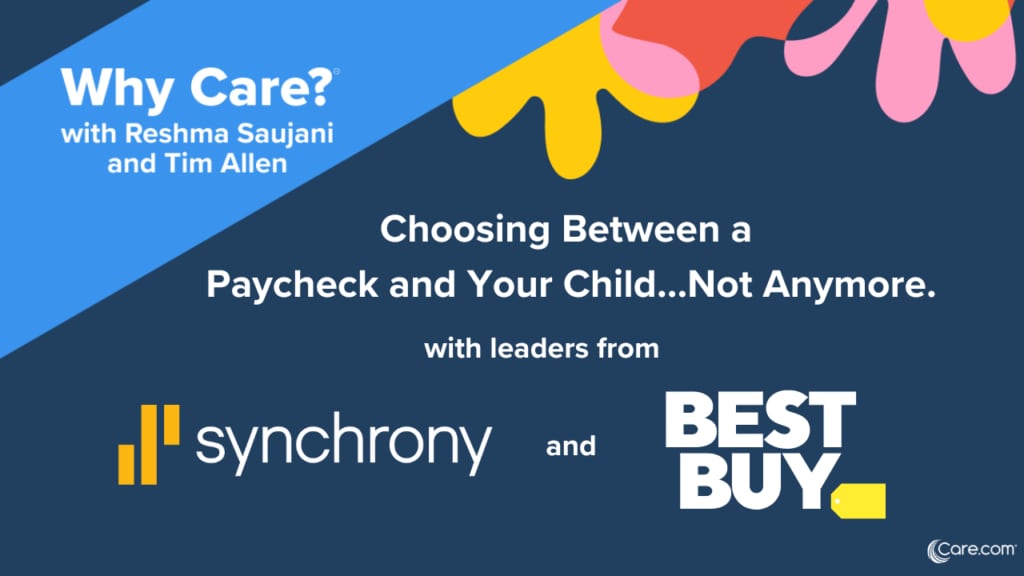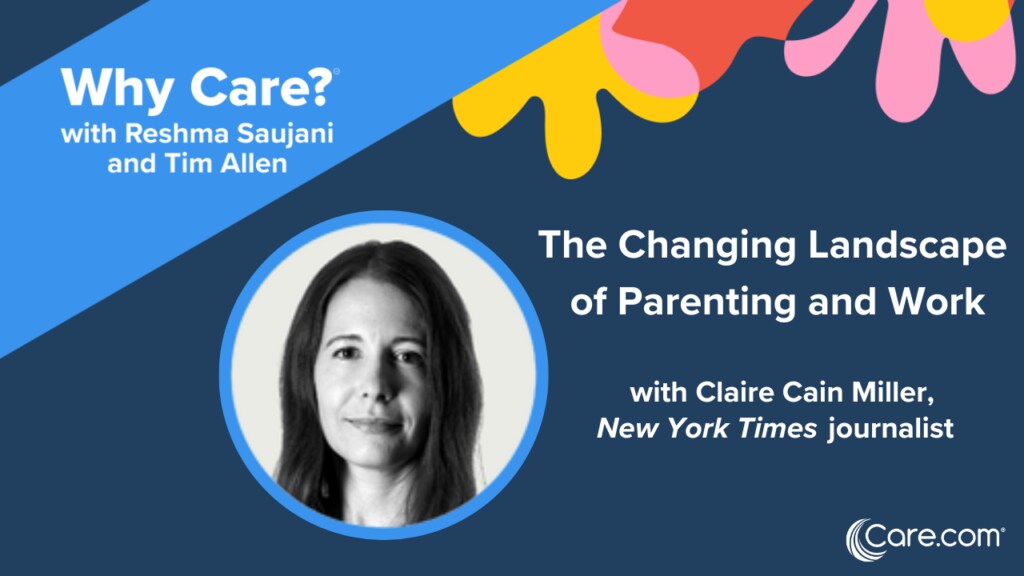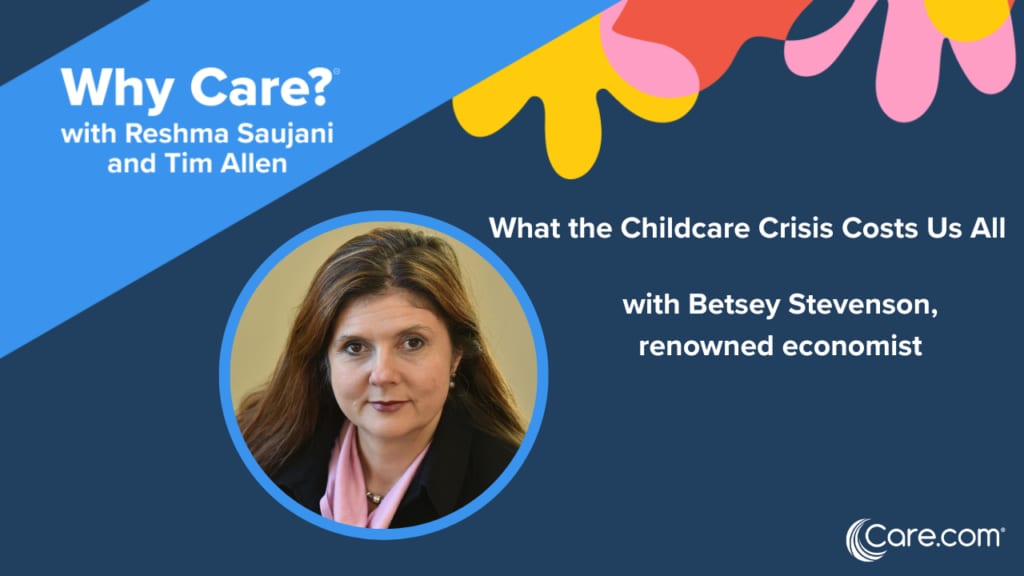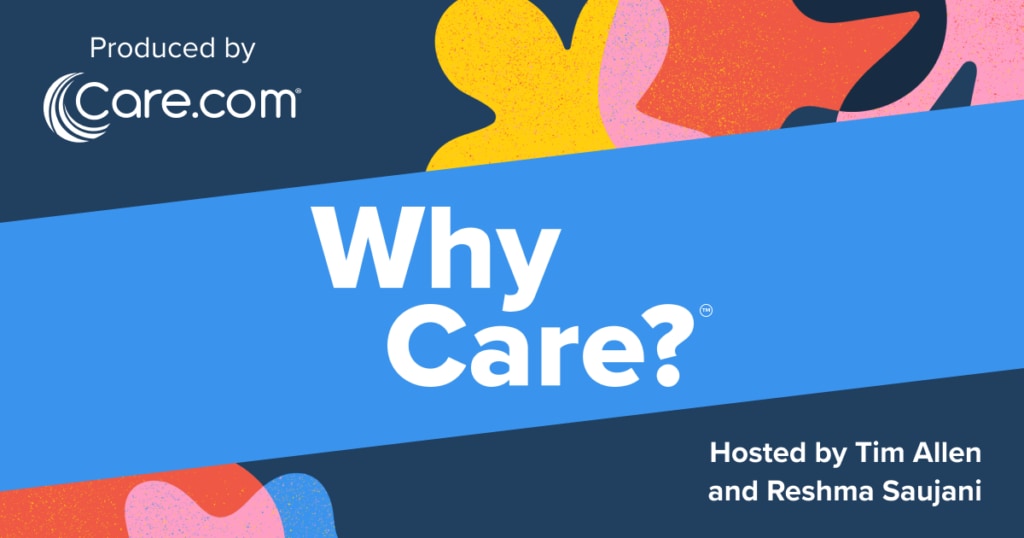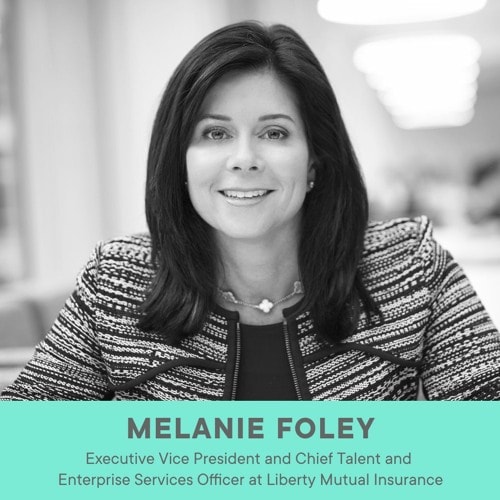Supporting families is one of the few true bipartisan issues so why has the government still failed to create a care system that actually works? Sure, it’s a huge and complex undertaking, but America’s created challenging systems at scale before. We built a public school system. We built Social Security. We built Homeland Security. Why is care – something that impacts everyone and drives overall economic growth – a problem no one is taking on? Reshma and Tim get the inside scoop from two people who work directly with both Republican and Democratic leaders.
Tim Allen:
Reshma, I’m so excited about our next segment.
Reshma Saujani:
I’m also excited!
Tim Allen:
Me too; let’s welcome our next two guests joining us to talk politics. First off, we have Sian Lewis. Sian Lewis is a seasoned data science, narrative strategy, and Research Leader. She leads the research practice AB conducting narrative, inauguration, and persuasion research. She’s a 2021 Society of Women Engineers, Spark awardee among tons of other awards, and she lives in Washington DC with her partner and two children.
And we also have Kristen Soltis Anderson, who with Marshall Plan for Moms as she worked on a bipartisan poll last year to better understand where Americans were on childcare and other issues related to family policy. Kristen is a pollster, co-founder of the firm Echelon Insights. She’s a CNN contributor and SiriusXM host, and also a brand new mom, please welcome both guests. Thank you for being here; we really appreciate you joining us.
Kristen Soltis Anderson:
It’s wonderful to be here.
Sian Lewis:
Thank you for having me.
Reshma Saujani:
So I have been looking forward to this conversation because I feel like it’s one of those issues where everyone should agree, but we don’t. So we had a chance to pass major legislation during the pandemic, but it didn’t happen. And almost every parent I know would agree that like we have to have a better, more accessible childcare system in our country. And even if you don’t have kids, investing in childcare matters, it should be a no-brainer, but it’s not. I think like in any issue, I love having people who have different opinions on both sides; because I think bringing us together to have this conversation is how we’re going to move closer to a solution. So I’m so excited to have two women that I respect and admire greatly. So I’m so excited to have you here.
Tim Allen:
Let’s jump right in. Let’s talk Bill Back Better. It’s just exhausting, that we were so close, and yet didn’t follow through. It marked, the first time care was seen on a critical infrastructure national level, the conversation was there, I felt like getting the same equivalent treatment as roads, and bridges, and tunnels, and the things that Americans look to and go, ‘Yes, we need this. We need this to have a functioning economy and a society that works.’ Why couldn’t we just all agree? Why couldn’t we get it through?
Reshma Saujani:
Kristen?
Kristen Soltis Anderson:
Yes.
Tim Allen:
It’s sort of an easy question, by the way.
Kristen Soltis Anderson:
Look, on the Republican side, it was very unlikely that you were going to get a lot of Republican votes for pretty much anything that was spending money. So it’s not just about childcare itself. There were things like roads and bridges, which did pick up a handful of Republican votes here and there. But for the broader sort of Bill Back Better bill, the likelihood that you were going to get enough Republican votes to get something across the finish line requiring them was pretty low. Unless read in on the politics within the Democratic Party about why say, climate made it in, but child care didn’t. In the end, this is perhaps psychoanalyzing of Senator Joe Manchin, which is not a thing I’m an expert in. But I do know that from Republicans’ perspectives, their views of how to address the child care issue, sort of differ from Democrats in a fundamental enough way that you weren’t likely to get Republican votes on that bill.
Now, what is still interesting about child care as a political issue is that versus say something like climate that a lot of people do say is a big issue that needs to be addressed, is that there’s a pretty big partisan gap on the question of is climate change something we should be doing something about? Is it something that governments should be getting engaged in? Republicans and Democrats don’t necessarily see eye to eye on that; but on the question of do we need to do something about the broken childcare system in the United States, and the fact that it’s so expensive, and the fact that it’s so hard to access, there actually is pretty bipartisan consensus around the existence of the problem, and that makes it unique from a lot of problems that get talked about in Washington. The challenge, however, as I mentioned, is the well then what do you do about it? And that’s where the two parties diverge pretty greatly.
Sian Lewis:
Well, it is for sure. Getting back to what happened with the bill, child care was put in there with inflation-reducing measures and to couch childcare within the context of a pandemic, then the context of a major economic upheaval within the context of all the things that are happening in America. And to not only talk about the narrative around childcare is truly an economic matter, is truly a matter that keeps women in the labor force numbers. It’s truly a matter that reduces the burdens on family, it’s truly a bread and butter issue, it’s truly is one of the problems that happened with the Darren white that is still there.
You have folks like Joe Manchin saying, listen, be honest children who doesn’t love children, Greg was talking about reducing inflation here, and so when you talk about it in those terms, childcare, unfortunately, was left on the chopping block. Now, everything that Kristen just said, about this being an important matter, about needing to be funded was so very important, and yes, we very much differ on that it needs to be funded. But really what as a person who studies narratives, we study how things are formed, how the story is told, and how ultimately is driven to political action. And talking about the story of childhood, as often couched in terms of, well, this is a moral issue, but not as an economic issue, not as a major issue in our labor force, and not as a major issue with GDP. That’s a major driving force in how this country operates, and as a medium force, how this country does not operate on the global scale, because our country is mapped well, 32 out of 40, of industrialized nations when it comes to this thing. So overall childcare is an economic sector and needs to be spoken about that way in order to get the funding that we need for it.
Reshma Saujani:
It’s a great point. I think that’s why we talk about it; it is an economic factor. It is most women in our country work to work, and I think Kristen, you would probably agree with that, that it is and I guess my question is two things is, if we were to present it from a narrative perspective, as an economic issue, like Republicans want the economy moving, they want innovation, they want full participation, I would think that that argument would work. And then the second thing I want to ask you, one of the things I’ve heard a lot of Republicans talk about after the Dobbs decision is, well, if we’re going to move in that direction, we got to support, we got to start thinking about women and supporting women. And it almost seems like post-Dobbs since we’re going to be in this from my perspective forcing birth for the next decade, it seems as though there’s an opportunity to get more partisan support on childcare, and paid leave, and other things that are going to support women and support children and support families. Do you think that’s the case?
Kristen Soltis Anderson:
I definitely think in a post-Dobbs world, the pressure has been ratcheted up big time on Republicans who may very sincerely hold views that are pro-life and not want to budge off of those, but are now getting asked the question, even more so. Okay, if that’s where you stand on this, then what are you doing for moms? What are you doing for women, when they have children? How are you making sure there are those supports there, if you’re going to talk this big game, you have to walk the walk? So I think as that pressure ratchets up, and I think especially as we’re heading into the midterms, and Republicans are feeling the political pressure from the sort of backlash and reverberations from Dobbs, they are aware that they’re going to have to have a better answer to those questions. A logistical challenge on the Republican side at the moment, frankly, comes down to a really horrible tragedy that happened just a couple of weeks ago, where Congresswoman Jackie Walorski, she was the sort of main Republican in Congress, or at least on the House side, advocating for doing something about these issues, putting forward ideas that, again, Democrats are probably not going to embrace their support. But it’s something let’s give employers more tax credit. So they can offer child care on paid leave, benefits those things, she passed away in a car accident. And so now there’s, I think Republicans in Congress have lost one of their biggest champions when it comes to trying to think creatively and focus on these issues. And so if Republicans win the house, there are questions about, who will be in charge of different things, but I think this economic question of, okay, if you don’t like what’s been put forward for how to solve this problem, what would you do about it, is only going to rise, especially now that Republicans sort of knows, okay, you’re losing college-educated women, women have come out of the pandemic, having faced enormous setbacks, and a lot of people have had their eyes open. What are you doing to address this new reality? I think that pressure will be there.
Tim Allen:
That’s interesting. It’s very interesting to think about that from a pressure perspective. Do you think over time, in the midterms, it’s going to be the right moment for this to have happened? Do you think that there’s a long lead time, I guess, is what I’m asking in regards to yes, Dobb’s decision kind of forces the issue even more, it kind of forces the issue to like be faced from our political parties. Do you think that this is a couple of years off? Do you think this is decades off? We were in our last segment of the conversation, talking about how there hasn’t really been major change to a care infrastructure perspective, since World War Two, if you think about it. We really haven’t passed major legislation in terms of you could argue Child Tax Credit, which is now revoked, was that moment in time where you saw child poverty cut in half? Do you think that this is an immediacy issue, or do you think that there’s enough time and a frame of time that we could actually address it over time with the replicants Democratic Party?
Reshma Saujani:
Can I add to Tim’s question too, and Betsey Stevenson, who was with us on our team said that the two things that we needed, the two things that push policy are a crisis and squeaky wheels. And so, what do you think about that, too? Because arguably, we have the right crisis to get something done but maybe the wheels weren’t squeaky enough?
Kristen Soltis Anderson:
Yeah, well, I think the challenge with the crisis around child care that emerged out of COVID is that it was not a crisis happening in a vacuum. It was a crisis within a crisis. Everything was sort of on fire at that moment, and so how do you make that one piece which we know, Reshma, from our survey data, was like house on fire level challenge for so many women, still was, in the context of small businesses shutting down and what have you, and that there’s always just some other crisis that has popped up.
For me, I think inflation is an issue that Republicans are talking about nonstop headed into this midterm, it’s because in polls were showing it coming in as a top issue, and for many voters, they’re just finding that the cost of living is too expensive. But for parents, the cost of childcare is a huge piece of that. How do you create a system where, on the one hand, childcare workers who are often very underpaid, how do you get them better wages, but then that also means someone’s going to pay those higher wages; so is that the parents then that’s driving up their costs? Like how do you create a system that balances all of those competing needs? I think in the midst of coming out of the COVID-19 crisis, there’s a lot of money thrown at things, but not a lot of thought about, well, how do we change systems so that sustainably, we can do things better? And I think childcare is just one example of a victim of that.
Sian Lewis:
So I feel hopeful, and I’m an internal optimist, and I think that they’re really headed to several crises in this country. But one of them is an extreme labor shortage that we have straight up worker shortage, that gap is getting bigger and bigger and bigger. And so we have families 75% of whom their day-to-day work is disrupted because of childcare. We have increased births, we think coming up as a result of Dobbs. If we have folks, straight up demanding higher wages, and if we have folks who are doing what we call white billing, which is not managed, by the way, and we have a new view on how people should be treated at work among millennials and younger folks, especially Gen Z folks wanting to be ahead on treatment and such.
But all of these things along with ridiculous stagnant wages since the 70s have been leading to this labor shortage. And I think out of all the things out of all the policies that we have, anywhere in this country, that is a thing that actually might catalyze childcare to be treated as an important issue, and when something’s really important issue that means those actual budget line items for it is actually a failure that’s paid for in this country. In order to ensure that this country operates, we can’t keep going the way we’re going. And the labor shortage that we have is growing year by year, and the gap is getting so huge, that literally something has to be done.
So now’s the time over the next couple of weeks, no matter who’s in the administration, no matter who’s in the office, to truly work on closing the labor gap, closing the worker shortage. One of the easiest ways to do that any economist will tell you, no matter who went through Economies, they will tell you on report after report, just to make childcare more affordable, right? If you just need childcare, the minimum amount of childcare goes right now, a million woman gets to go back to work like that, and that of both being able to go back to work, both being able to go back to what’s contributing to the economy is really what we need to get this country back on track. So I think that not to this next few years, because of the huge pressures in the labor market, that we will see childcare effective, that we will see the public investment that we need in order to meet Americans’ needs.
Reshma Saujani:
Yeah, and that’s such an important point. Go ahead, Tim.
Tim Allen:
No, no, please, please, please. I was just going to say we hear it at care.com So what we hear from caregivers is, why should I break my back so to speak, taking care of other people’s children for subpar wages when I can go across the street to a local supercenter or somewhere else make 18 bucks an hour and have a set schedule and not have all of the stress and the demand. We hear it we’re like, ‘Look this is a labor market today, right? If the temperature comes off of inflation, the labor market cools a little bit, what is going to end up happening?’ But we’ve seen it in droves. We’ve seen daycare centers losing employees, they’re not getting paid, they don’t have the benefits. We’ve seen caregivers leave the marketplace because there’s so many other opportunities available. I share in that hope, I share in that hope that we can actually increase wages and benefits for this community. I go back to Kristen’s point, and I go, I think this is where part of the gap starts to emerge between Republican Democrats is, but who pays for it? Is it private sector? Is it tax benefits to individual families like that is where I would love to hear a little more on how do we actually afford this as a society because someone’s paying for it, someone somewhere either it’s that family who can’t take on more with inflation today or another segment? So we’d love to hear what thoughts are.
Kristen Soltis Anderson:
Yeah, well, I think there’s both the question of who pays for it, and what are we counting as child care? So the who pays for a question is one that that is like a tail is oldest time? Is it that the government provides the childcare? Is it that the government funds, child care that already exists? Is it that government gives parents a check? There’s a whole bunch of ways you can sort of push out the money, and then there’s the other question of, well, what does the money go for? And then you wind up in that sort of thorny, the thicket you find around issues like school choice in K12 education. So for some parents, for them, their ideal childcare situation might be in-home caregiver, or a nanny share or something like that.
But for someone else, it may be taking their child to a daycare center where they’re with a couple of other children, and they’re getting a different sort of social experience, and there are a couple of teachers or caregivers, and families are going to have different preferences on that front. And is the program you are creating flexible enough to make space for a daycare center that is publicly run or a daycare center that is privately run or the preschool at the Methodist church down the street or the nanny share running out of your neighbor’s house? Is there a way to have that flexibility available to parents, or is it necessary in crafting a policy to have just a pretty narrow definition of what can count and what can get funded? That’s where I think you’d also see some friction open up, at least with regard to where Republicans might object.
Tim Allen:
Yeah, I completely agree.
Sian Lewis:
I agree. So as a kind caregiver, I have to say, I’d be remiss, if I do not say that the expansion of the Child Care and Development Block Grant is what is needed here, we have this system in place, ready, let’s make it bigger, and that has increased the funding, and then there’s been a lockbox on that too, to ensure that the funds aren’t used for anything else, especially in times of crisis. I have to say that, I had to get rid of it. What I am frequently disappointed in is the use of this idea of flexibility as a way to stop that from happening. But I am an end and inclusive of the same, I think we all should be let us increase the size of the black man, and let’s provide the parents the flexibility that they need through subsidies in order to get the type of childcare that works best for their families. I’m all about the pay wage, let’s do it both.
Reshma Saujani:
So, Kristen, I’m going to play devil’s advocate, because I think there’s some sentiment sometimes that conservatives have more of a patriarchal view of who should be doing the caregiving, and that part of the reason why some of this is just not supported and not getting data is because we don’t want women in the workplace. What do you think about that?
Kristen Soltis Anderson:
I certainly don’t think that that’s a majority view. I don’t doubt that there are strains of that thought that exist in America today. I’m not pushing back against that. But I don’t think that that’s the majority…
Reshma Saujani:
You don’t think that that’s what’s driving the policy up?
Kristen Soltis Anderson:
Well, I certainly think that there are I’m sure you could find them, and I’m sure it wouldn’t take too much effort to find some idiot state representative somewhere who has like said something that is going to make my skin crawl. I do think that for the most part, this is less about well, I don’t think there should be child care because women should be home providing the child care, but rather that the logistics of how you go about providing high-quality childcare at really big scale is just so complicated and runs afoul of so many different kinds of ideological roadblocks, that it’s very hard to square. I see this as somebody who is, I’m politically right of center. I am a small business owner, and I also just had a baby three months ago, and I’m going through for the very first time figuring out, how do I navigate all of that?
And it would be so wonderful if in the process of trying to solve the childcare question, there were more resources rather than just like me on my own trying to figure out how to become a legal employer in different states, how do you navigate all that? If it’s complicated for me, someone who is very fortunate and has lots of resources, oh, my God, I can’t imagine what it’s like, for so many families out there. But I also understand that there’s probably not just a quick fix to address some of this. Because, again, if you press on one part of the system, does it actually like create a problem somewhere else, or what are the unintended consequences? So while I don’t want to dismiss your concern that there are patriarchal views out there, that may be a hurdle for some, I do think that most of the objection comes down to the like the accounting is childcare, how are we paying for it? Yeah, that kind of thing.
Sian Lewis:
Well, I once again, in my optimistic hat, I think that we can do anything in this nation. So one of the things, I’m an immigrant, I am also a mom to two children, and one of the best things about this country is that it can do really hard things at scale. So our social security system, let me tell you something, is in no event, truly is admired all around the world, not only because at scale, you deliver these funds to folks who need them, especially the elderly, but also because it hasn’t been sustained for so very long. It’s one of the oldest systems in the world. It is certainly one of the biggest in the system, actually, I think it is the biggest, and so security is super complicated. When we think of it, we think about oh, social retire, and then they get the pay. But Social Security does a lot of other things, provides this ability that benefits the folks, it obviously provides manifest such as survivors. It provides benefits to folks who have lost their families or threatened to transfer to children who needs it.
That’s all of these other things as well does it at scale, and especially if they came along at a time when folks and it couldn’t be done, that it wouldn’t last and every year since I’ve been in this country since I’ve been 15 years old, right? Because they’re long gone, every year, they say it’s going to crumble next year, and it doesn’t, it just keeps going. It keeps going, no one’s bank is being broken by Social Security is a part of our budget, and it keeps going. There’s no reason why we can’t build a childcare system at scale. Why should countries like Finland put our country to shame when it comes to building an incredible system for childcare? I’m sure somebody’s done a lot on this.
Well, sure they’re not as big as those, I’m sure they’re not as broad as us, I’m sure they don’t have mixed income as us. But then you’re able to build something that we can spend our time creating as well, we can actually build a childcare system, if the political will, is there. Again, I think I said before, I hope there will be upcoming crises, especially in the labor force, if it’s going to be broken, we’ll be there to build a system. We build a Department of Homeland Security like that in response. We put in the patience, I can be able to build these incredible systems to keep ourselves safe, and it’s very short amount of time at scale. I think we can do the same thing for our children, if the will is there, and I think I hope that this will, will be there soon.
Reshma Saujani:
Yeah, it’s powerful. This is what Betsey Stevenson said sorry, about high school, like the United States was the first one to offer free High School, and people thought that was crazy, but it worked.
Tim Allen:
Sian, what I was going to say is something you hit upon is interesting to me. You talked about Social Security, wouldn’t you say part of the reason Social Security keeps surviving and continues to be something that is fun it is because of the collective group of senior individuals that work together as a community in order to advocate and fight for it? So you look at parents, and a lot of parents are prone to say that, look, it’s an individual game. I take care of my kids, I have it figured out, and parents look at each other and they’re like, great, you take care of your own, you chose to have kids.
Single people will say that a lot of times to me, parents say that a lot of times to me. So it’s at the choice of the battle. You don’t choose to age; you must age, you choose to be a parent in a lot of communities and circles. So look at that and go, why should the government fund this? Why should this be something that actually needs to happen? And it’s always been an existential crisis that has forced these moments as you pointed out before, Homeland and Security was a result of an existential crisis to our country. I look at this crisis and I go, doesn’t this continue to revert back to, again, individual responsibility? A lot of people have that sentiment, what do you say to that?
Sian Lewis:
Well, I think you’re right in the sense that there is a personal responsibility that comes with being a parent, and you want to have a child and you should find a way to pay for this and pay for things and such. But we now have legally and at some points fiduciary responsible for raising our children in ways that are beyond our control. I can’t say just one day, I’ve had enough as this gets too expensive, I’m done with everything now goodbye, throw me in jail, right? So I am legally tied to this wonderful little human, and AB legally touches wonderful human, I have to incur some costs.
I wouldn’t be on this podcast if childcare was like a cell phone bill if it were a regular expense, but from what I’ve seen, just in the past few years, and I just an aggressive experience. And then again, with 35% of Americans see a little more than a third of us, our lives are entirely disrupted by childcare. So you take something that was a personal choice, but now collectively workforce is disrupted, life is disrupted, your home life is disrupted, school life is disrupted, it disrupts all these different arenas that are far, far beyond the control of my personal responsibility, and so adding childcare as a public health issue, not only as an economic issue but also as a public health issue.
There are so many public health issues that we handle in America that you can argue are a matter of personal choice. A lot of folks we see subsidized health care, a lot of people we see between drive on roads, we have so many things that we get, as a result of personal choices that have been expanded for the public plus, childcare is a public good. It doesn’t stop just that I made a decision, and now I have to go for it. Childcare, the ability to take care of our children and produce for our children and for society is a public good that needs a budget line item.
Kristen Soltis Anderson:
And there are two sorts of thoughts about speaking to folks on the right side of the aisle in that kind of it’s a public good language that I think, have some potential. The first is I’ve done research about the extent to which public officials understand the brain science of children ages zero to three, and just how unbelievably important it is to make sure that children are getting adequate care of simulation, nutrition, all of that at those ages. Because if you make investments there, you are saving yourself all sorts of downstream heartache, and to be really clinical and numbers-focused about it. All sorts of negative expenses that you have to pay down the road if a child is unable to just access nurturing care early on.
So that’s piece number one, if you’re talking to somebody who only wants to talk in terms of numbers, that’s a numbers argument that I have seen work. But the other one is, and this is an argument that is sort of bubbled around in right-of-center circles for a while is anxiety about how more and more people in the United States are opting out of parenthood entirely and just are looking at it and thinking this is too expensive. This is too challenging. This is not aligned with my lifestyle choices, I’m not interested. And if you have fewer and fewer children, then you have fewer and fewer workers down the road to sort of keep those things like social security afloat. So there’s a great book by a writer named Jonathan Last he writes for the Bulwark, which is kind of a like never Trumpy, right-of-center website, and his book is called What to Expect When no one’s Expecting, and it’s what happens when in a country people have all just kind of opted out of child-rearing because it’s too expensive. It’s too onerous, whatever, and the downstream effects are terrible on the whole society. So even if you have chosen to look, having kids isn’t for me, you still benefit from a society where there is a next generation that is coming along. You do have some benefit there, and so while that’s maybe not the most compelling argument to all segments have the right, the idea that childcare is not just an individual choice, but does have some collective but like there are collective impacts is something that there are pieces of the conservative movement, I think are very gung ho about.
Reshma Saujani:
So thinking about that, we have an election coming up. I feel like every week, one week it’s like the Democrats are going to win. I guess this week it’s the Republicans are going to win. I’d love to hear from both of you like, Kristen for you, if the Republicans wins, do you think they’ll do anything on these issues? And Sian, if you think that the Democrats wins are they going to do anything on these issues?
Kristen Soltis Anderson:
So for the Republican side, I think a big issue is that even if Republicans take the house, and even if they get the Senate, it’ll still be by less than a sort of filibuster-proof majority, they have not really expressed a great deal of interest in getting rid of the filibuster, and so that’s a long way of saying I don’t expect a lot of anything to really happen. You had the Republicans from the House put out what they called the commitment to America, which is supposed to be, hey, if we wind up taking the house, here are the types of bills were going to pass. They’re not necessarily of the mind that they are ever going to be signed into law by President Biden, it’s a little bit different than like in 1994. The Contract with America, the Republicans put forward, there was an idea that President Bill Clinton might sign some of it, I’m not entirely convinced that Republicans believe that it’s going to wind up getting signed into law. But when I look through this commitment to America, I don’t really see childcare, jumping out. I do see school choice as a thing. But again, that’s more focused on K through 12. So unfortunately, I don’t think that it is going to necessarily be a priority of a Republican House, except insofar as it is something that is a big rising cost of living, and if Republicans are claiming they’re going to lower cost of living, making sure that this is part of the conversation, I think, is the best bet.
Sian Lewis:
I agree with you. I see a handful of the same handful of Democrats really pushing childcare for it, and pushing for the expansion of the Block Grant and pitching for increased state subsidies, and so on and so forth. But I don’t see the major renovations. What I do see happening, though, is an opening. I used to be a labor lobbyist, I’ve seen major labor issues coming down the pike for the United States of America major. And I see childcare, and the expansion of childcare, and the funding of childcare as a major thing that all folks are going to have to take on regardless of their political affiliation. I also see a pushback coming down the pike. Right now, there’s a trend that’s happening that in DC childcare providers have to have a college degree. I see that being rolled back. I also see hopefully, the unsunsetting of the child tax credit that was increased in the last year and during the pandemic, and have some sunset. I see that also increasing, which is an indirect way of increasing childcare where I do hope that folks do come together and put some real money behind public investment in childcare; and I don’t think that it’ll be one of the issue for either parties.
Tim Allen:
I’m in a unique position where I get to say, I hope both of you are right. The outcome here is, the consistency of the conversation is the structure is broken, and we need to help families, and that is the through line I hear on both sides of the aisle in what we talked about here, not only in this arena but even in my own personal life. What I want to also hit upon is, the guidelines are to spend 7% of a household income on childcare. And right now, through our cost of care survey, we do it every year, where we survey 1000s of families to understand what’s happening in the American lives and the share of wallet, families are spending upwards of 20% of their household income. It’s not sustainable. Both of you talk about how you want to be able to cut costs for families, right? This is one of those items that could be done with such grace. And I won’t say relative ease, but I will say it has such a profound impact on the bottom line of the family, and I really do hope that we can collectively find a solution there. Because it’s just not tenable in terms of the 20%.
Reshma Saujani:
This conversation gave me hope. There’s not a lot of contention here. I think that there’s actually a lot of consensus and clarity. I think it’s just about how do we get there? And I think like anything, I guess that takes a compromise on what is the right way to kind of make this happen. But I do think from both the conversation today and their conversation with Betsy, my takeaway also though, we do have to galvanize parents to really put pressure on politicians on both sides of the aisles to make this a priority, if we’re ever going to really get it done.
Tim Allen:
Truly in any political situation; I’m with your Reshma, we need to galvanize parties, right, left, center, undecided, just turning 18 I don’t care who you are.
Reshma Saujani:
Everyone; it’s not a partisan issue. I think may be a partisan solution.
Tim Allen:
Yeah.
Kristen Soltis Anderson:
Absolutely! Well, thank you, guys, so much for having this conversation with us. I feel like we learned so much and I’m so grateful. I know you’re both moms both busy moms. Kristen is a new mom which is so beautiful, but we really appreciate your time.
Tim Allen:
It’s been an incredible conversation.
Kristen Soltis Anderson:
Thank you so much for having us.
Sian Lewis:
Bye.
Click the image below to view more episodes of Why Care?
